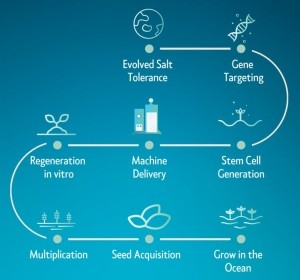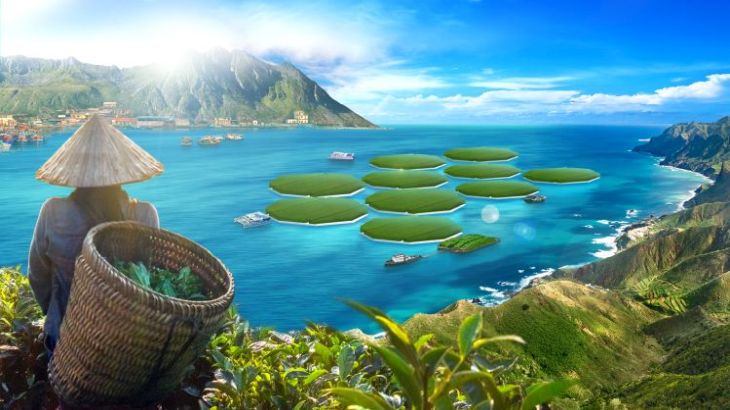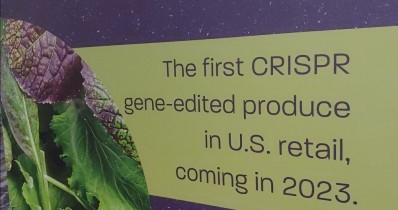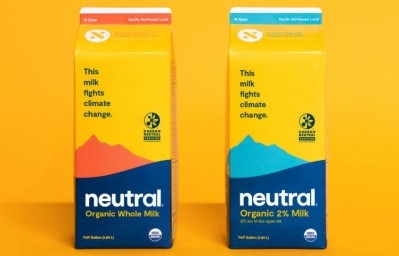Ocean ag startup ALORA unveils ‘the most salt-tolerant terrestrial plants on the planet'
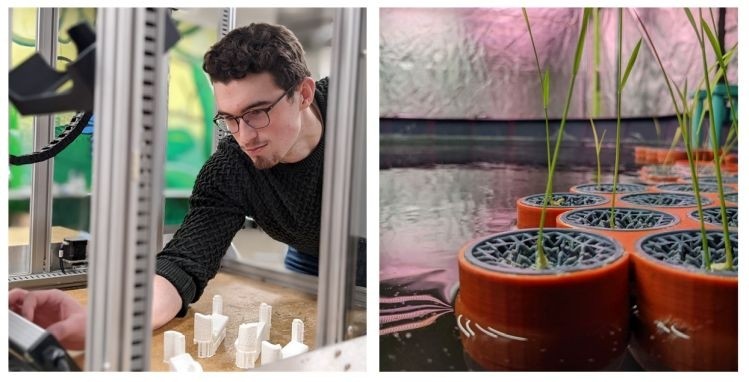
ALORA’s first plant - a rice variety billed as “the most salt-tolerant 'terrestrial' plant on the planet” - can grow in half the salinity of oceanic saltwater (up to 16g salt per liter, whereas sea water is 28-32g/L), opening up opportunities to grow rice on land impacted by salinity, a growing problem as sea levels rise, said the Ontario, Canada-based startup, whose first land agriculture plot will be in the Mekong Delta, Vietnam.
However, future generations will be able to grow in sea water, ALORA co-founder Luke Young told FoodNavigator-USA: “We know exactly what needs to be done to create oceanic rice plants. [However] these [first] plants … open us to begin commercialization of our crops for land agriculture impacted by salinity.”
Co-founder Rory Hornby added: “Globally, lowland rice agriculture has a problem right now with the sea level rise, salt intrusion, you can see it year in year out in the Mekong Delta and other regions. It’s a big challenge for family farmers, it's ruining their livelihood, so some have switched from growing rice to growing shrimp, for instance. They would prefer to grow rice, but the environment isn't allowing them to.”
'This is basically making what is currently non-productive land into productive land'
Founded in 2019 by Young and Hornby, two Brits studying biology at Durham University in the UK, ALORA (formerly known as Agrisea) has just raised US$1.4m from investors including Toyota Ventures and Mistletoe, and has filed a utility patent "protecting the use of eight genes that work synergistically with each other to achieve that salt tolerance, not just in rice, but in any crop in a salty environment."
So how are they doing it?
Young (who focused on plant genetics and hormone regulation in plants at university), and Hornby (who focused on developmental biology) first isolate stem cells from rice, then use CRISPR technology to ‘switch on’ eight genes normally only active in plants naturally tolerant to saline water, explained Young.
Switching on a capability many plants already possess
Trying to grow salt-tolerant rice and other crops is not new, he observed, but ALORA is taking it to the next level: “One person who we should absolutely mention is [renowned Chinese agricultural scientist] Yuan Longping, who is considered the grandfather of hybrid rice.
“He was able to develop slightly salt-tolerant varieties, but with [traditional] breeding [techniques], it takes a very long time.
“There’s a company in Saudi Arabia with Red Sea Farms, which takes a more modern tack using a single target of one gene and they are able to increase salt tolerance that way, but there’s a limit to how much salt tolerance you can get with both of those methods.”
ALORA, by contrast, took a different approach, he said: “If you look at nature, there are organisms such as mangroves and seagrasses that have developed the ability to grow in high salt environments, and we looked at how they do it. We found a pattern of genes that is already present in rice, wheat, corn and other commercial crops, but the mechanism is not turned on as it doesn’t need to be.
“So it's a case of being able to switch those on in the correct manner, the correct location, the correct position within the plant, in such a way that that pattern then can allow salt entry, but not allow salt entry into the most productive parts of the plant.”
He added: "We’re not regulated as a GMO [because no foreign DNA is being added], we are regulated as gene editing in most cases, which means it's an easier path to market.”
Methane net zero
ALORA is also looking beyond salt tolerance to methane production, explained Hornby, who says ALORA hopes to expand beyond rice, and adopt technologies to harness the energy of the oceans and the potential of the 3D water column for food production.
“The core technology is salt tolerance, but we’re also looking at [reducing] greenhouse gas emissions [through ocean agriculture]. How rice is grown currently releases a huge amount of methane, and part of that reflects the relationship between rice and soil.”
In traditional rice growing systems, he said, bacteria that thrive in a waterlogged environment without any oxygen produce a huge amount of methane, “so when you drain the rice paddies and harvest the rice, the methane gets released into the atmosphere, which is incredibly damaging to the environment.”
By moving to a marine environment or a salty land environment with salt tolerant rice crops, he said, those bacteria are unable to survive owing to the high salt concentrations, so no methane is produced.
ALORA has also been able to isolate beneficial bacteria that can capture methane from the air and produce bio fertilizer, said Young, “as we obviously don't want to be pumping fertilizer into the ocean. Plus, we’re not using pesticides, herbicides, or fungicides.”
He explained: “In an ocean farm setup, we co-culture our rice with this beneficial bacteria for the seedling stage of the plant. This allows the bacteria to work its way into the roots [where it can survive, despite the salty environment, because it is trapped within the root structure of the plants], drawing in methane and breaking it down.
“We are looking into applying this in a salty land setting too. In this scenario, you actively break down and reduce the methane present in the atmosphere. We can be methane negative in salty soils and floating in the ocean."
Coastline locations
So what inputs do ALORA’s salt tolerant rice varieties need to flourish?
If you were trying to grow rice in the middle of the Pacific Ocean, said Young, “you're going to have a pretty tough time, there just aren’t enough nutrients at the surface of the water. So what we try and do is look at places where tides meet with currents that bring those nutrients up from the lower colder parts of the ocean up to the surface, so that's on most coastlines around the world, and is very strong in particular locations.”
The business model
Asked about ALORA's business model, Young explained that for land applications, “We're looking at accessing local varieties, where we would take the most popular variety from Vietnam, for example, produce a salt-tolerant version of that same variety with all the same cooking profiles and taste, and then license that back locally, so we're looking to work with agricultural companies with an existing customer base who are interested in being able to grow in salty environments.
“We've already been approached by quite a lot of individuals and companies.”
Looking ahead to ocean cultivation, he said, “We have two different systems depending on the location. One is having a fully owned farming setup, operating our own farms, being able to process that grain and selling to retail or local food and beverage businesses. In other areas, we're looking at having local partners [to grow the rice themselves].”
Higher yields
So does salt-tolerance impact other aspects of the plant?
Not according to Hornby: “So the taste and other characteristics all stay the same, and [when growing the plants in the ocean] you actually get an increase in yield because the plant has to put less effort into growing roots to find nutrients than it otherwise would [in soil].”
Beyond rice
So what other crops could potentially benefit from ALORA’s technology?
“We're really interested in soybeans," said Hornby. "But we're also looking into the main cereal crops, so corn, wheat, and potentially even barley. And then we're going to look at lettuce, kale, and potentially some high value herbs.”
He added: “We can apply this technology to any crop that's commercially grown, but we're starting in rice because it's already used in a flooded system, and it’s a key source of calories to over half the world’s population. So it's a very important crop, but environmental factors mean that its growth has been limited. In the Mekong Delta, for example, the increased salinity there is reducing the amount of land available to grow rice, and yet it's one of the most important food baskets in Southeast Asia.
“With a technology like ours, you can continue to grow there, and you can expand on the area by growing along coastlines and oceans as well. We are basically making what is currently non-productive land into productive land and the potential is unlimited.”
“ALORA’s innovative approach to cultivating salt-tolerant crops is a game-changing trifecta that addresses the key issues related to climate change and the production of food, namely the release of greenhouse gas into the atmosphere (specifically methane), food security and land usage, as well as water conservation.”
Lisa Coca, climate fund partner, Toyota Ventures [Image credit: ALORA]

